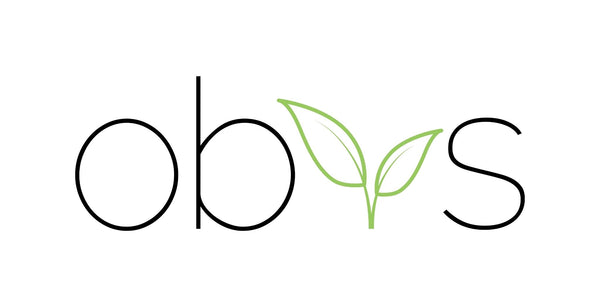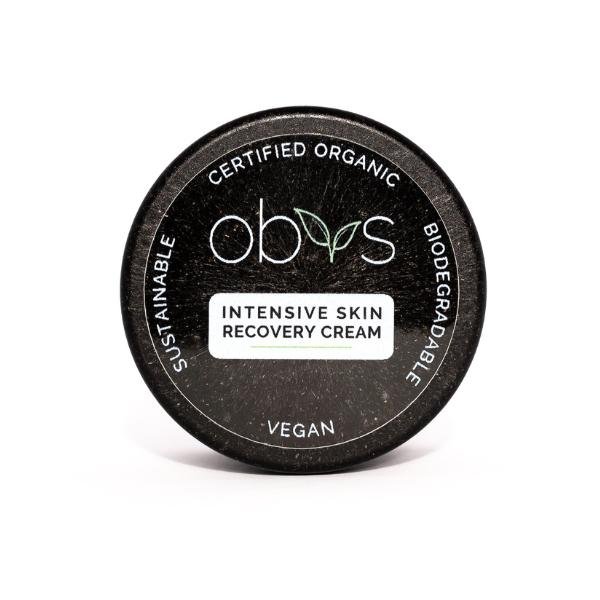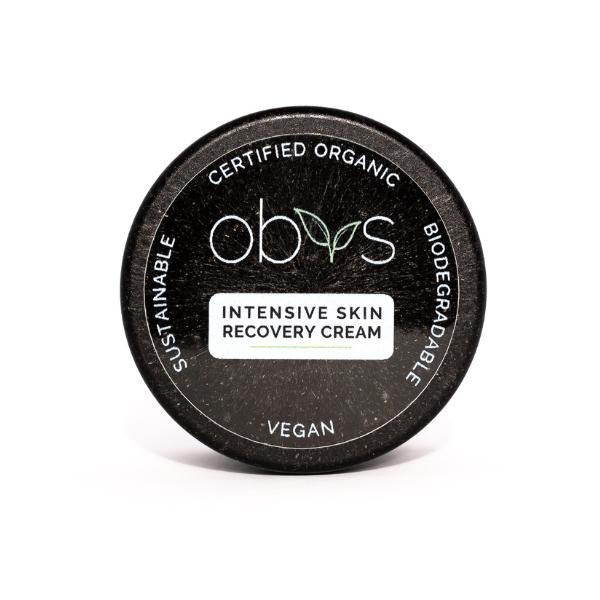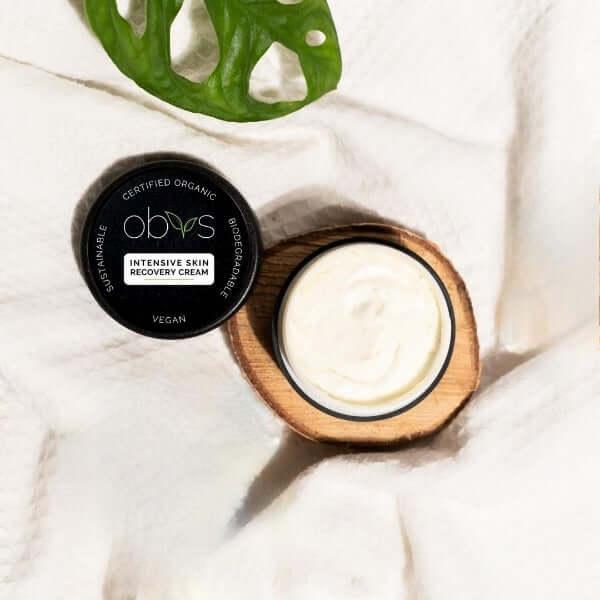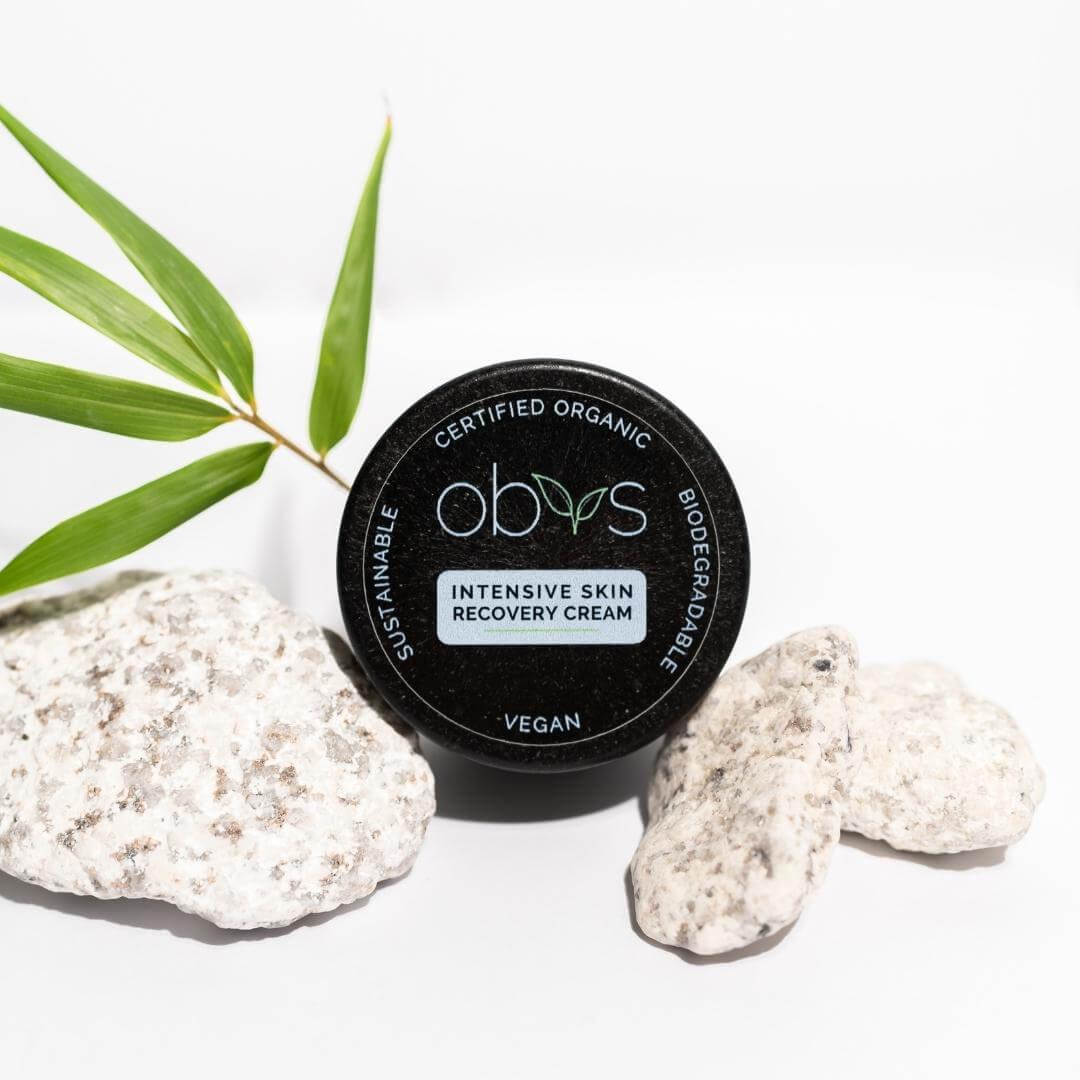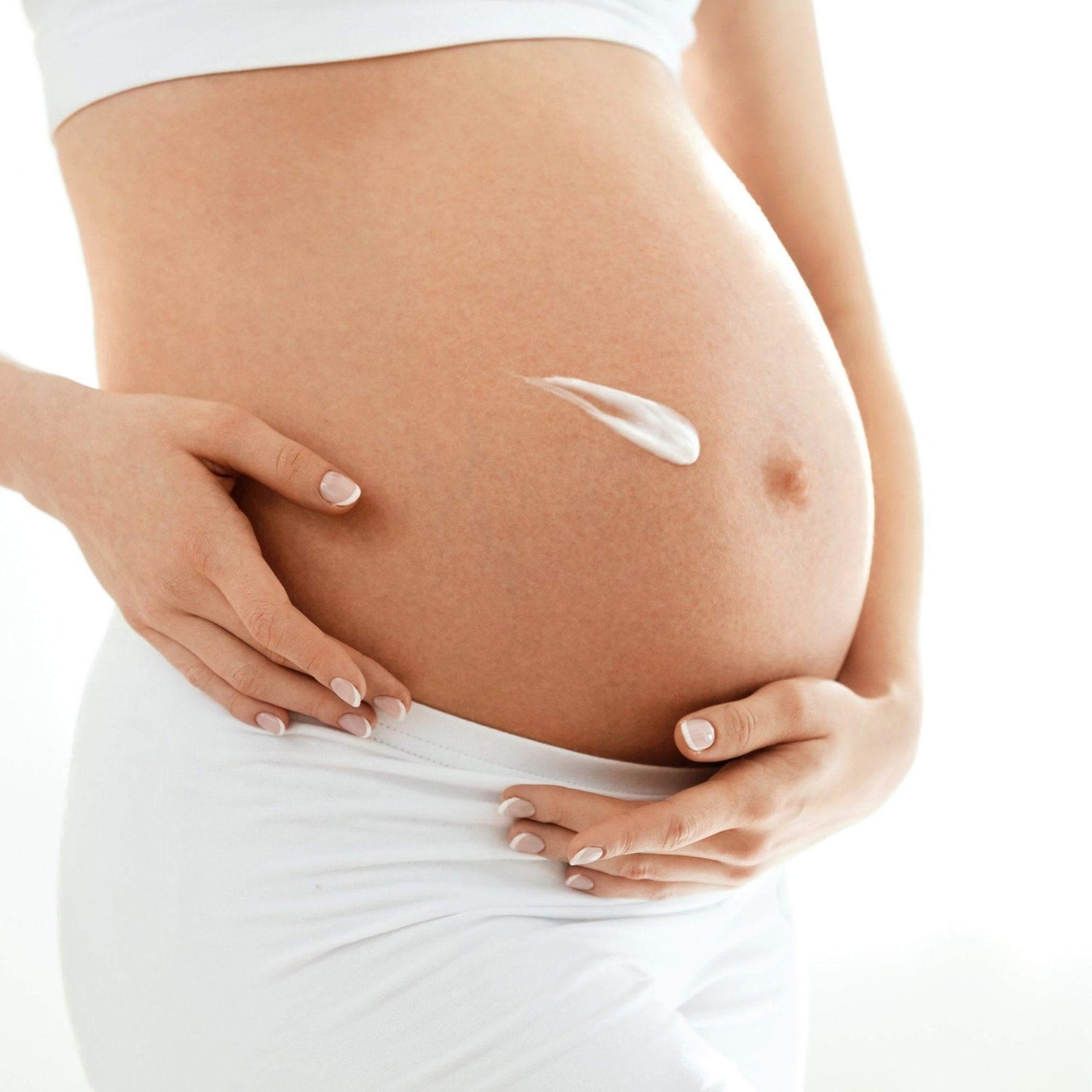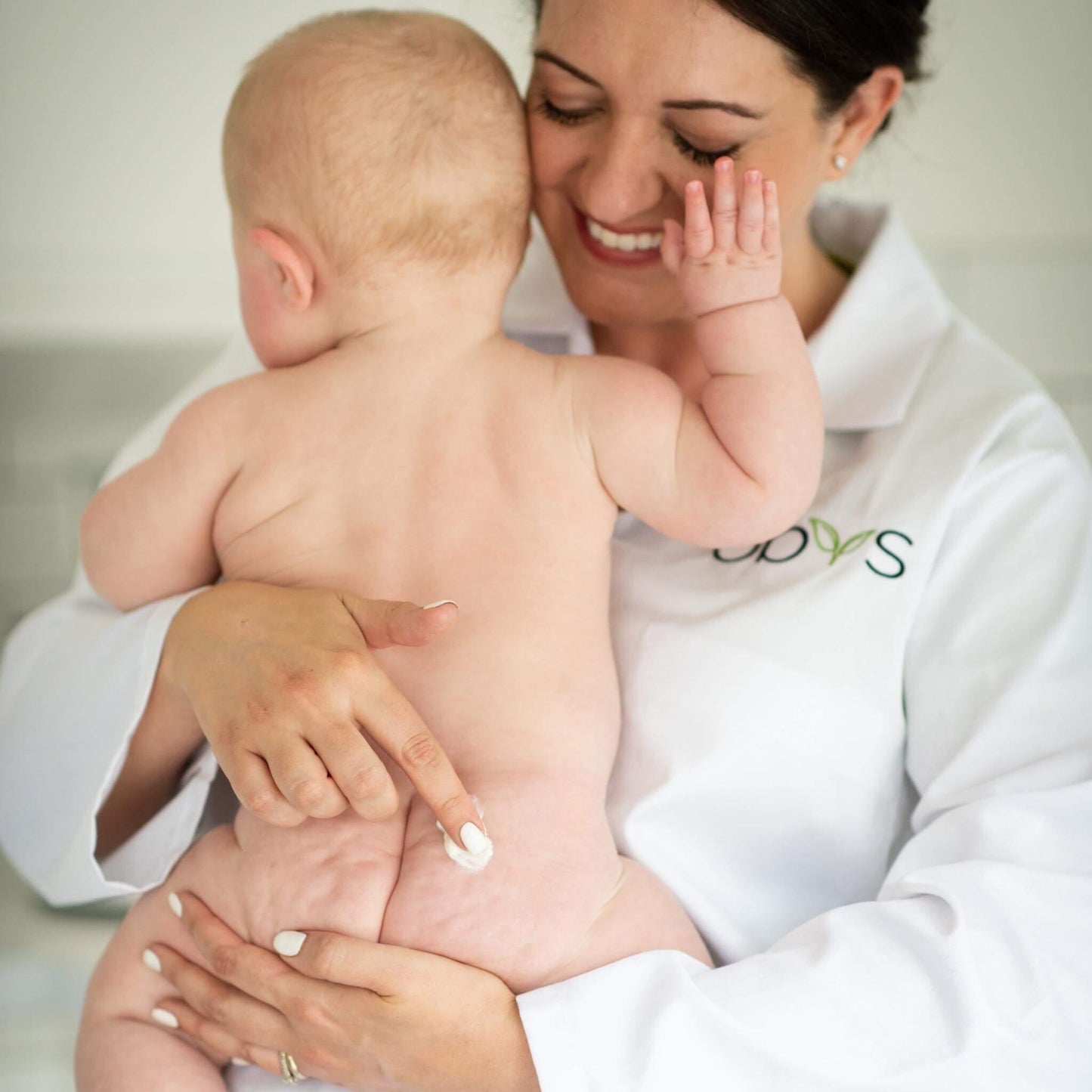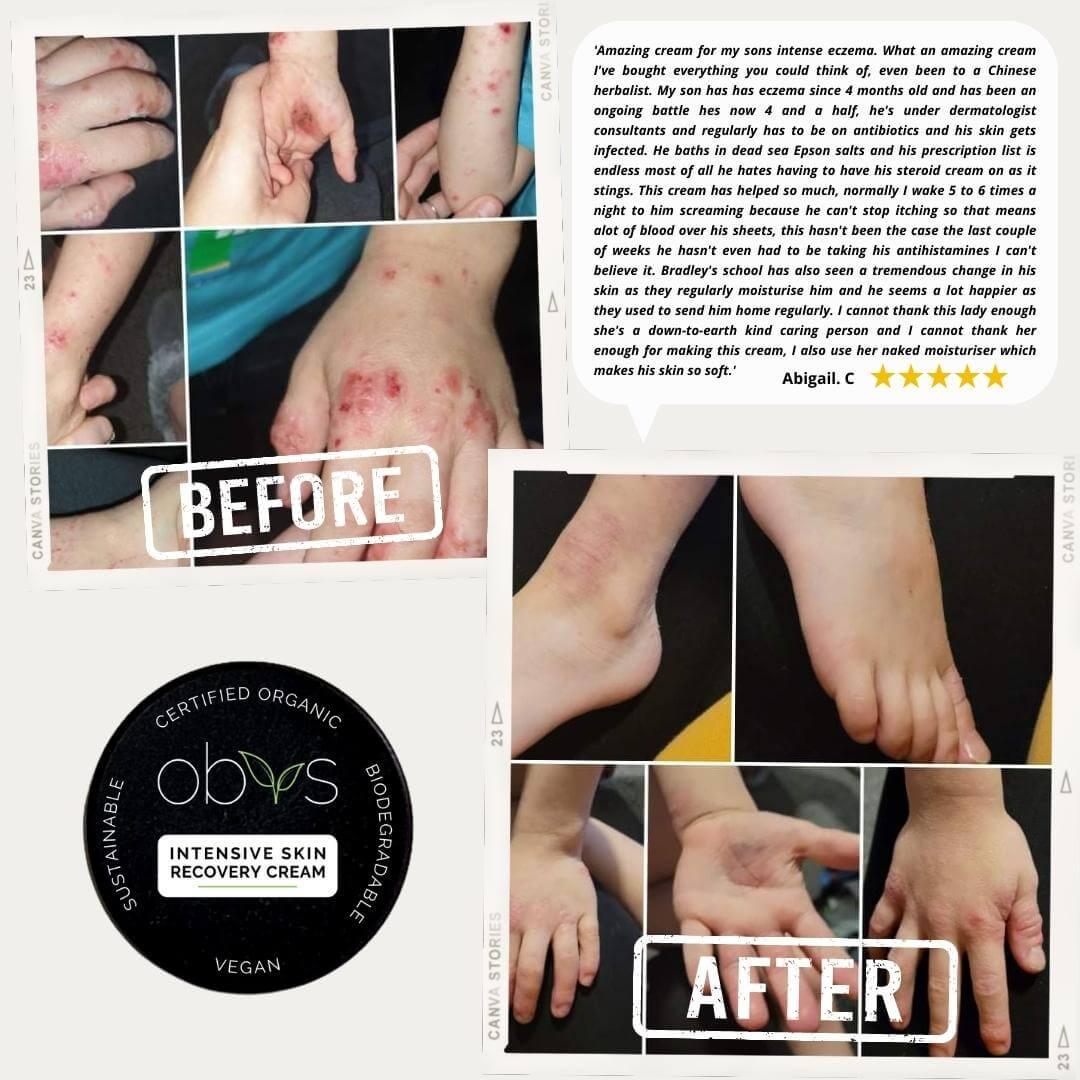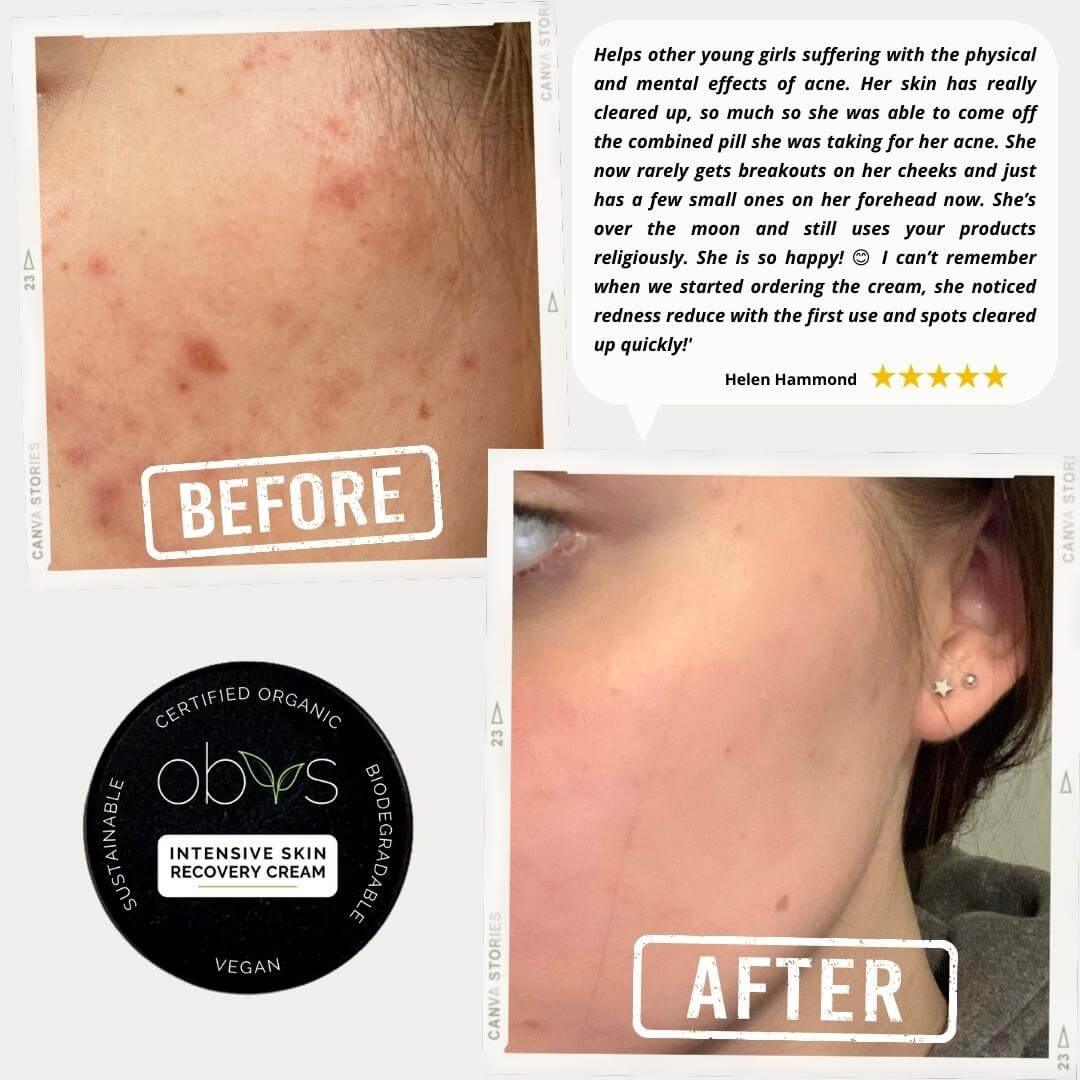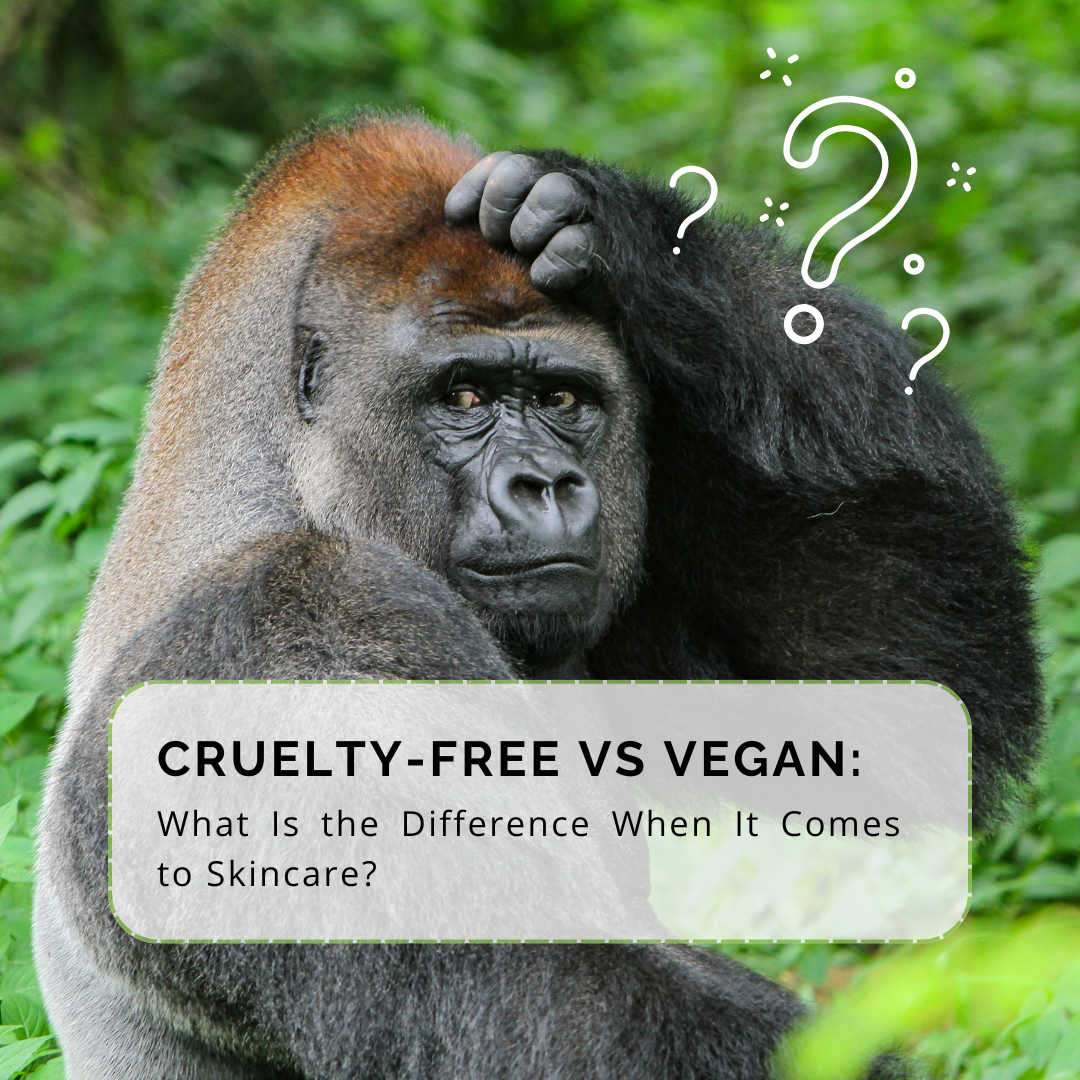
Cruelty-Free vs Vegan: What Is the Difference When It Comes to Skincare?
Share
Have you ever stood in the beauty aisle, squinting at a moisturiser bottle, trying to figure out what ‘cruelty-free’ or ‘vegan’ really means?
Or maybe you’ve been lost in online product descriptions, wrestling with ingredient lists that sound like a science exam? It’s confusing, isn’t it?
The beauty world loves to throw around ethical buzzwords, but those labels can hide some murky truths. As the founder of Obvs Skincare, I’m here to help you make informed choices that feel good for your skin, animals, and the planet.
At Obvs Skincare, we committed to transparency from day one, securing Vegan Society, Leaping Bunny, and Soil Association COSMOS Organic certifications before we even launched. As a small business, the majority of our budget goes to these certifications, which come with rigorous audits, but it’s worth every minute knowing you can trust us. But this isn’t just about us, it’s about empowering you to understand what’s in your skincare and why it matters. Let’s dive into the world of vegan and organic beauty, uncover the science behind it, and explore how one small swap can make a big impact.
Contents
The Maze of Beauty Buzzwords
What Does Cruelty-Free Actually Mean?
Vegan Skincare: A Step Beyond
The Power of Trusted Certifications
The Science of Vegan and Organic Skincare
One Small Swap, One Big Difference
Tips for Choosing Ethical Skincare
References
The Maze of Beauty Buzzwords
Picture yourself scanning a fancy face cream that boasts ‘cruelty-free’ on the label. You feel good about your choice until you realise the ingredients include collagen or tallow. Confused? You’re not alone. A 2021 survey by The Vegan Society revealed that only 2.6% of 1,000 people could correctly identify all animal-derived ingredients in a list of common cosmetic components, and 43.1% felt ‘not very confident’ or ‘not at all confident’ in spotting them [1].
Why is it so hard? The beauty industry often uses cryptic names like ‘Cera Alba’ (just beeswax) or ‘CI 75470’ (crushed cochineal beetles). These terms mask animal origins, leaving even savvy shoppers scratching their heads. Have you ever bought a product thinking it was ethical, only to discover it wasn’t what it seemed? Let’s clear up the confusion so you can shop with confidence.
What Does Cruelty-Free Actually Mean?
A ‘cruelty-free’ label means the product hasn’t been tested on animals, a move away from outdated practices like testing mascara on rabbits. It’s a great start, but it doesn’t tell the whole story. The product could still contain animal-derived ingredients like:
🐄 Tallow: Rendered from animal fat, often from cows or sheep, and used in moisturisers and soaps.
🦴 Collagen: Extracted from cow bones, skin, or ligaments, often found in ‘plumping’ creams.
🐦Keratin: Sourced from animal hair, horns, or feathers, common in hair treatments.
🐞 Carmine: Made from crushed cochineal beetles, used for vibrant red lipsticks.
The term ‘cruelty-free’ isn’t tightly regulated. Some brands use a Fixed Cut-Off Date (FCOD), meaning they stopped animal testing after a certain point but may have done it before. Others sell in markets like China, where post-market animal testing has historically been required, which muddies their ethical claims. So, while cruelty-free is progress, it’s only part of the picture. Want to know what takes it further?
Vegan Skincare: A Step Beyond
Vegan skincare goes beyond cruelty-free by saying no to all animal ingredients, from the obvious (like tallow) to the obscure (like guanine from fish scales). It also means no animal testing at any stage of production. Choosing vegan skincare isn’t just about avoiding harm, it’s about embracing plant-based ingredients that are kinder to your skin and the environment. For example, organic safflower oil, from the safflower plant, not animal-derived oils, nourishes your skin without the ethical baggage. Similarly, rosehip oil, from the rosehip fruit, not animal-derived oils, delivers powerful anti-ageing benefits.
Why does this matter? Animal agriculture contributes up to 14.5% of global greenhouse gas emissions [2]. By choosing vegan skincare, you’re reducing your environmental footprint while treating your skin to ingredients that perform. It’s a win-win for you and the planet. Have you considered how your skincare choices impact the world around you?
The Power of Trusted Certifications
Certifications like The Vegan Society, Leaping Bunny, and Soil Association COSMOS Organic are game-changers. The Vegan Society, which pioneered vegan certification in 1990, ensures no animal-derived ingredients or testing are involved. Leaping Bunny audits supply chains to guarantee no animal testing sneaks in. Soil Association COSMOS Organic verifies that ingredients are sustainably sourced and free from harmful chemicals. At Obvs Skincare, we secured all three before launching, but this isn’t about us; it’s about giving you clarity.

The trusted Vegan Society and Cruelty Free logos
These certifications aren’t easy to get. For small businesses like ours, the majority of our budget goes to paying for these rigorous audits, which take time and effort. But it’s worth it to know you can trust what you’re buying. A 2023 study found 39% of British women choosing vegan beauty aren’t vegan themselves, they just value the transparency these certifications provide [1]. When you see these logos, you know you’re making a compassionate choice. How much do you trust the labels on your skincare products?
The Science of Vegan and Organic Skincare
Let’s talk science. Vegan and organic skincare isn’t just ethical, it’s effective. Rosehip oil, a plant-based powerhouse, is rich in essential fatty acids and antioxidants. A 2015 study in the Journal of Clinical Interventions in Aging found rosehip oil significantly improved skin hydration and reduced wrinkles in just eight weeks [3]. Then there’s vitamin C from organic mandarin essential oil, like what’s found in our Organic Morning Mandarin Moisturiser, which brightens skin and fights free radicals [4].
Animal-derived ingredients, on the other hand, can have downsides. Tallow and lanolin (from sheep’s wool) can cause allergic reactions in up to 6% of people with sensitive skin [5]. Plant-based alternatives, like shea butter, offer similar hydration with a lower risk of irritation. Vegan and organic ingredients are often cleaner and more sustainable, giving your skin the love it deserves. What ingredients are you putting on your skin right now?
One Small Swap, One Big Difference
You don’t need to overhaul your life or become vegan to make a difference. Switching to vegan and organic skincare is like choosing a reusable water bottle, a small step with a big impact. By choosing certified products, you’re saying no to the 115 million animals used in testing each year [6] and supporting a healthier planet. Plus, your skin benefits from ingredients that are as effective as they are kind.
Whether it’s a vegan cleanser or an organic moisturiser, one swap can start a ripple effect. Imagine the impact if everyone made just one ethical choice. what could that do for animals, the environment, and your skin?
Tips for Choosing Ethical Skincare
Want to shop smarter? Here are some tips to help you choose vegan and organic skincare with confidence:
✅ Look for Trusted Logos: Seek out The Vegan Society sunflower, Leaping Bunny rabbit, or Soil Association COSMOS Organic logo. Don’t be fooled by look-alike logos, check the official websites to verify certifications and don't fall for any "B-Corp" claims (that is another story, but I don't wanna get sued!).
📋 Read Ingredient Lists: Watch for sneaky animal-derived ingredients like tallow, collagen, or carmine. If you’re unsure, apps like Think Dirty can help decode labels (avoid Yuka, they are misinformed and in my opinion, one of the biggest greenwashers out there - again, another story but I don't wanna get sued).
🌿 Support Certified Brands: Choose brands that invest in certifications, as their audits ensure transparency. Small businesses often pour significant resources into these, so your support matters.
📦 Start Small: Try swapping one product, like a moisturiser or cleanser, to ease into vegan and organic skincare.
❓ Ask Questions: Contact brands to ask about their sourcing and testing practices. Transparent companies will happily share details.
A Fascinating Fact to Share
Did you know that producing one litre of animal-derived tallow for skincare can generate up to 10 times the carbon emissions of plant-based oils like shea butter or safflower oil [7]? By choosing vegan and organic skincare, you’re not just pampering your skin, you’re helping fight climate change. Share that with a friend next time you’re chatting about beauty ;)
Shop Vegan and Cruelty Free Organic Skincare Here
Read more at the Vegan Society Website here
References
The Vegan Society. (2021). Survey of 1,000 UK individuals via Attest.
FAO. (2013). Tackling Climate Change Through Livestock. Food and Agriculture Organization of the United Nations.
Phetcharat, L., Wongsuphasawat, K., & Winther, K. (2015). The effectiveness of a standardized rosehip powder, containing seeds and shells of Rosa canina, on skin ageing. Journal of Clinical Interventions in Aging, 10, 1849-1856.
Pullar, J. M., et al. (2017). The Roles of Vitamin C in Skin Health. Nutrients, 9(8), 866.
Lee, B., & Warshaw, E. (2008). Lanolin allergy: History, epidemiology, and clinical implications. Dermatitis, 19(2), 63-72.
Humane Society International. (2023). Global Animal Testing Statistics.
Poore, J., & Nemecek, T. (2018). Reducing food’s environmental impacts through producers and consumers. Science, 360(6392), 987-992.
